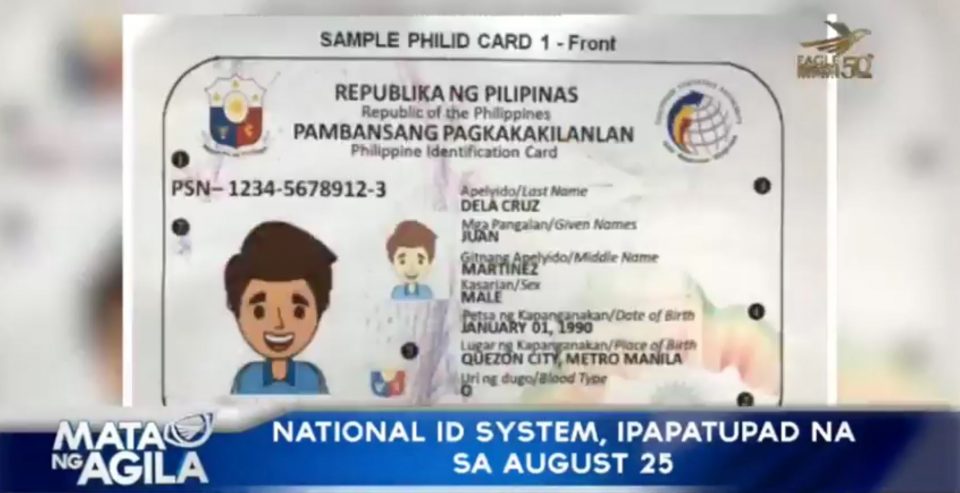

(Eagle News) — The National ID system is set to take effect on August 25, but its implementing rules and regulation might still be completed in September, according to the Philippine Statistics Authority.
The law takes effect 15 days after it had been published in a newspaper of general circulation.
The Philippine Identification System (PhilSys) Act was signed into law by President Rodrigo Duterte on August 6, and was published in newspapers on August 9.
The PSA, however, will only be able to complete the implementing rules and regulations (IRR) for the law in September.
Once the IRR is published will the PSA be able to procure the things needed for the implementation of the national ID.
The national ID “will dispense with the need to present multiple IDs for different governmental transactions,” the President said.
Duterte said that this new ID will “not just enhance administrative governance, but reduce corruption, curtail bureaucratic red tape, and promote the ease of doing business.”
The President said the new national ID will also “avert fraudulent transactions, strengthen financial inclusion, and create a more secure environment for our people.”
He also assured the public about the benefits of the PHIL ID, as he dismissed apprehensions and fears about data privacy and security previously raised by critics and oppositors.
“Several administrations before me have tried but failed to implement this very important measure partly because of the apprehensions peddled by some groups about privacy and data security among others,” he said in his speech.
According to the Congressional Policy and Budget Research department of the House of Representatives, the “existing multiple identification system in the government is one of the causes of red tape in the bureaucracy.”
“Filipinos have to present various identification cards issued by different government agencies in order to prove their identity here and abroad,” it said.
It said that the Philippines is one of only nine (9) countries in the world without a national identification (ID) system.
“The issuance of identification cards from different agencies has created unnecessary and costly redundancies, thereby entailing higher costs,” it explained.
It said a national ID will lower costs, streamline transactions, and provide ease and convenience.
“Individuals can use the ID as an official document that will be honored in transactions concerning a person’s identity, marital status, birth, and other personal circumstances. It will be accepted in transactions with national government agencies, local government units, government-owned or controlled corporations, and government financial institutions. It may also be used to identify voters, schools, and employees, as well as to avail of senior citizens’ benefits. It may also be used in courts, for police clearances, and transactions with banking and financial institutions,” it explained.
